Chronic inflammation is one of those sneaky health issues that can silently build over time. It’s been linked to everything from heart disease and arthritis to fatigue and brain fog. The good news is, your daily diet can play a major role in managing it. By adding a few key anti-inflammatory foods to your meals often, you can help support long-term health and feel better day to day.
Here are 5 science-backed ingredients worth adding to your regular rotation—and some inspiration for how to enjoy them!
1. Turmeric
Why it works: Turmeric contains curcumin, a compound with potent anti-inflammatory and antioxidant properties. It’s been studied for its ability to reduce inflammation markers in the body and has shown promise in managing arthritis symptoms and supporting joint health. A 2021 review even found curcumin to be as effective as some over-the-counter anti-inflammatories.
How much: Aim for ½ to 1 teaspoon per day.
Try it: Stir turmeric into soups, curries or scrambled eggs. Or try a golden milk latte with almond milk, ginger, black pepper (to help absorption), and raw honey. For a quick option, this turmeric shot recipe is a winner on social media.
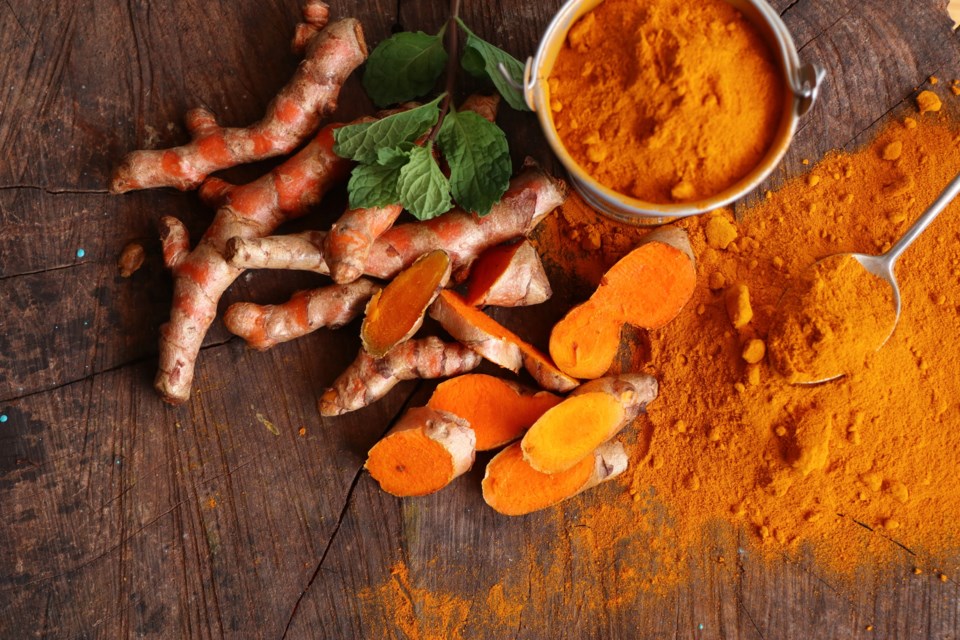
2. Blueberries
Why they work: Blueberries are loaded with anthocyanins, antioxidants that give them their deep purple hue and help fight oxidative stress in the body. Studies show regular consumption of blueberries may reduce inflammation and improve brain and heart health.
How much: About ½ cup daily is ideal.
Try it: Toss them on oatmeal, mix into yogurt, or add to smoothies. They’re also delicious frozen and blended with banana for a quick sorbet. Try this viral blueberry bark for something on the sweeter side with all the same wonderful benefits.
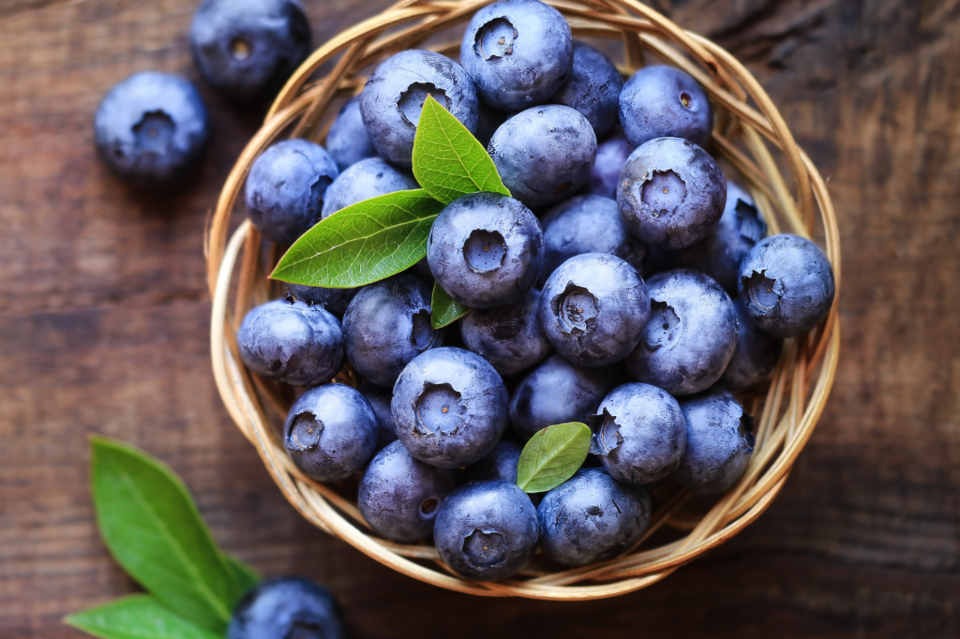
3. Salmon
Why it works: Salmon is one of the best sources of omega-3 fatty acids—specifically EPA and DHA—which help regulate inflammation in the body. These fatty acids have been shown to reduce the risk of heart disease and ease symptoms of inflammatory conditions like rheumatoid arthritis.
How often: Aim for two to three servings per week.
Try it: Grill or bake salmon with a drizzle of olive oil and lemon. Serve with a side of roasted sweet potato and steamed greens. Or try a salmon grain bowl with brown rice and avocado. This garlic butter salmon recipe is a crowd-pleaser.
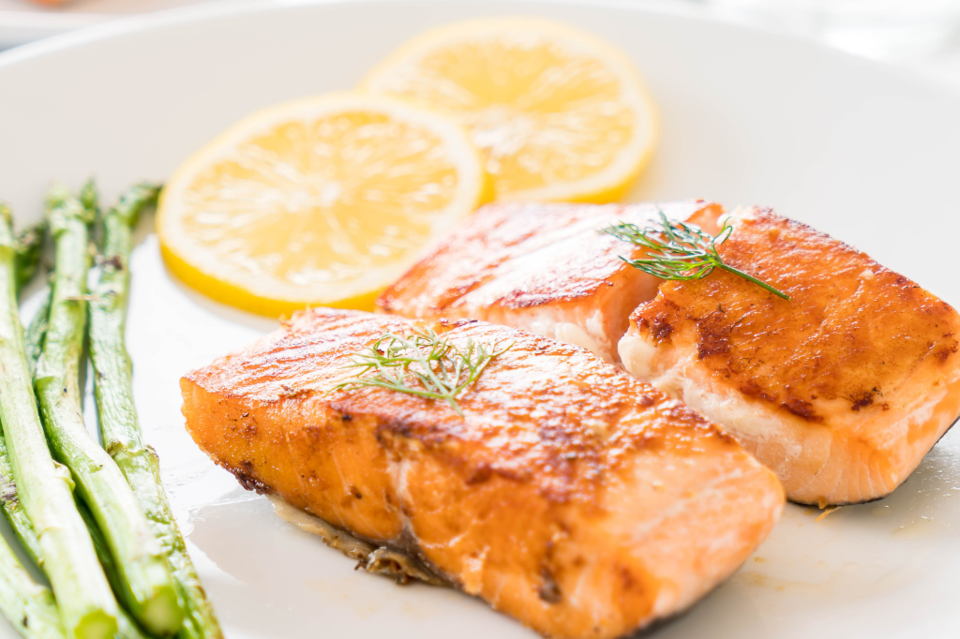
4. Leafy Greens
Why they work: Spinach, kale, Swiss chard, arugula—all of them are packed with fibre, antioxidants, and a variety of polyphenols that help reduce inflammation at the cellular level. They’re also rich in vitamin K, which has been associated with lower levels of inflammatory markers in the blood.
How often: One to two servings a day (raw or cooked) is a great goal.
Try it: Toss a handful into your morning smoothie, build a salad with chopped kale and tahini dressing, or sauté spinach with garlic and olive oil. You can even fold greens into soups, eggs, or pasta sauces for a nutrient boost.
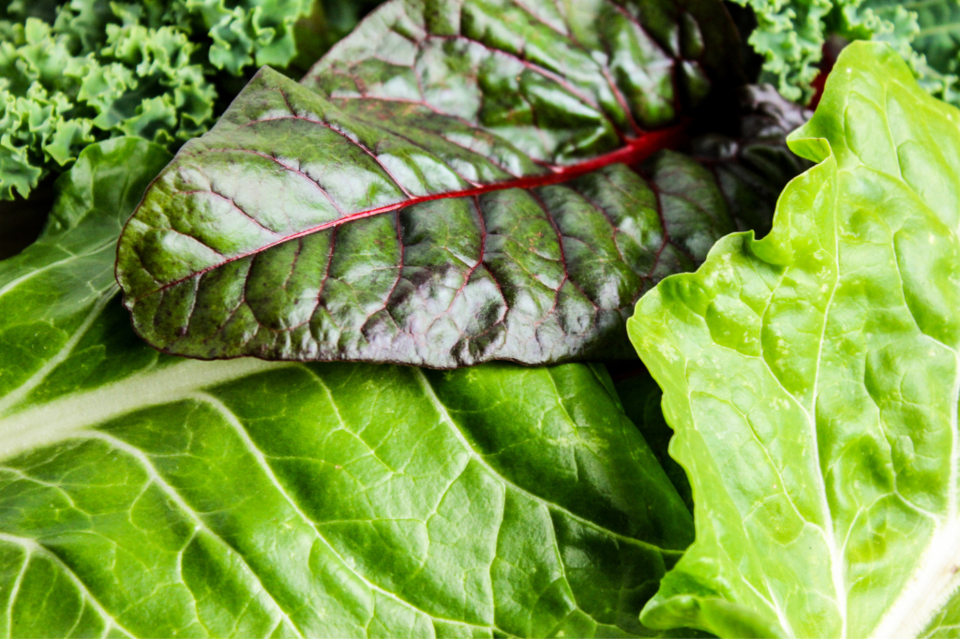
5. Walnuts
Why they work: Walnuts are one of the best plant-based sources of omega-3s (ALA) and have been shown to reduce inflammation and support brain health (no coincidence they are shaped like little brains!). They’re also rich in polyphenols and fibre, making them a smart choice for heart and gut health.
How often: A small handful (about ¼ cup) daily.
Try it: Add walnuts to your morning oatmeal or granola, toss them into a salad with arugula and goat cheese, or try them roasted with a pinch of cinnamon and sea salt. For a simple savoury version, these spicy roasted walnuts are great for snacking.
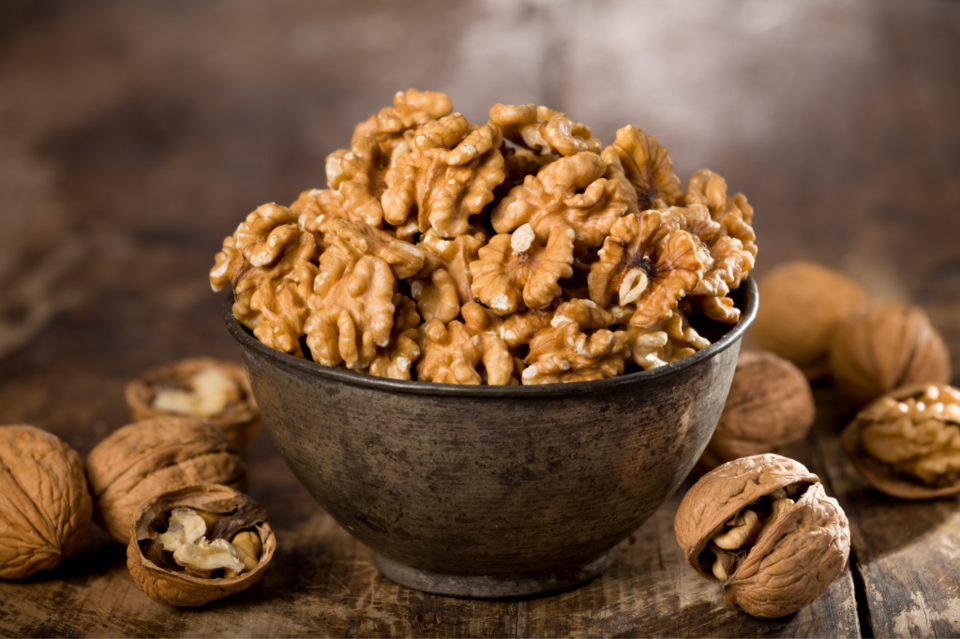
About the Author

Alicia is a journalist and editor in digital and print media specializing in health, nutrition, fitness, and wellness. She was previously the Editorial Director of Clean Eating and Vegetarian Times. Her work has also appeared in Hone Health The Edge, Yoga Journal, Women’s Running, and Oxygen, among others. In addition to being a content creator, she's an ISSA-certified nutritionist, certified personal trainer, and fitness studio owner in Toronto. Alicia loves spreading the word about helpful, science-backed health information, and she can be contacted via her website at aliciamtyler.com.




